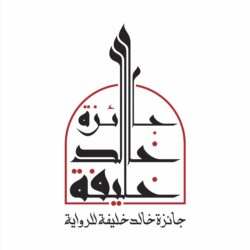Khaled Khalifa (January 1, 1964 – September 30, 2023)
A Syrian novelist and screenwriter, Khalid was born in Urum al-Sughra in the Atarib region, west of Aleppo. He studied law at the University of Aleppo, earning a bachelor’s degree in 1988.
Khalifa authored seven novels and numerous screenplays for television, short documentaries, and a full-length feature film. His works have been translated into several languages, including French, Italian, German, Norwegian, English, and Spanish.
He grew up during the early 1980s amid a politically, socially, and culturally dynamic environment in Aleppo, particularly during the height of conflicts among various political and religious groups. His family home in the “Mashhad” area became a meeting place for a group of intellectual youth, several of whom were arrested at different times.
Khalid was an active member of the renowned Literary Forum at the University of Aleppo, which featured the participation of academics, critics, and about eighty poets and storytellers. The forum introduced new literary voices and sensibilities in the 1980s before it was shut down in 1986. During this period, Khalid wrote poetry and some short stories.
Khalid’s literary experience was further refined through his involvement in founding the magazine Alef/Alef for Human and Creative Freedom in 1990, alongside writer and publisher Subhi Sawah and other young Syrian intellectuals. This magazine, edited by the veteran Syrian poet Mahmoud Al-Sayed, played a significant role in shaping Khalid’s approach to writing novels and television screenplays. During this time, he began working on his first novel, The Guardian of Deceit, which was published in 1993.
Khalid believed in the emergence of a new Syrian novel from the depths of a closed society. His works are marked by a creative artistic approach that skillfully navigates between central themes and marginal narratives, such as his portrayal of the marginalized Gypsies in his second novel, The Gypsies’ Notebooks (2000). Due to its content, Khalid’s membership in the Arab Writers Union was suspended for four years.
Khalid’s six published novels during his lifetime are deeply rooted in the social, political, and cultural fabric of Aleppo. His seventh novel, Dead Fish Breathes Lemon Peels (2024), published posthumously, is set in the city of Latakia and explores the disillusionment of its youth amid widespread corruption.
However, In Praise of Hatred (2006) remains his most prominent and impactful work. Written over thirteen years, the novel delves into the violent conflict between the Syrian regime and the Muslim Brotherhood, spanning from 1963 to 2005. Khalid described the novel as not merely a political account but a narrative told through vibrant characters in a socio-political context, transcending specific timelines and resonating with the cumulative fears of the Syrian people.
In addition to his novels, Khalid wrote several television screenplays, beginning with his first screenplay, The Jalali Family Chronicle, directed by Haitham Hakki and aired in 2000. The series explored the social and political dynamics of Aleppo’s environment, earning critical acclaim and facing opposition from influential local figures.
Khalid’s dramatic works often highlighted the social dynamics of Syria’s middle class, portraying their lives, routines, and cultural expressions, particularly among Syrian intellectuals.
Khalid was an outspoken supporter of the Syrian revolution from its outset, advocating its legitimacy as the only viable response to oppression. He once faced physical assault by Syrian security forces during the funeral of Syrian musician Rabi Ghazi in 2012, resulting in a broken arm.
Khalid passed away in Damascus on September 30, 2023. His funeral was attended by a large number of friends and admirers, beginning from Al-Abbasiyeen Hospital, with prayers held at Lala Pasha Mosque on Baghdad Street, and ending with his burial in the Taghaliba Cemetery (Martyrs’ Cemetery) on the slopes of Mount Qasioun in the Al-Muhajireen district overlooking Damascus.
Works
Novels
- The Guardian of Deceit (1993)
- The Gypsies’ Notebooks (2000)
- In Praise of Hatred (Syria 2006, Lebanon 2008): Translated into more than eight languages, shortlisted for the International Prize for Arabic Fiction (Booker) in 2008, and longlisted for the Independent Foreign Fiction Prize in 2013.
- No Knives in the Kitchens of This City (2013): Winner of the Naguib Mahfouz Medal for Literature, shortlisted for the International Prize for Arabic Fiction.
- Death is Hard Work (2016)
- No One Prayed Over Their Graves (2019): Published by Hachette Antoine Naufal, longlisted for the International Prize for Arabic Fiction in 2020.
- Dead Fish Breathes Lemon Peels (2024, published posthumously)
Television Series
- The Jalali Family Chronicle (2000)
- Rainbow (2001)
- Letters Written by the Rain (2003)
- People of the City (2004)
- The Last Rose (2006)
- A Woman’s Shadow (2007)
- Times of Fear (2007)
- Relative Calm (2009)
- The Key (2012)
- The Godfather: Club of the East, Season 2 (2016)

